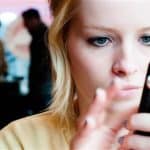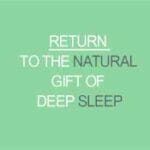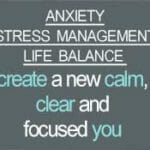Introduction to Anxiety and Technology, a two-part series by Valerie Grimes.
In a two-part series, Valerie Grimes, a certified clinical hypnotist with the American Council of Hypnotist Examiners and owner of The Flow Center in Dallas, Texas, discusses the unconscious effects technology usage is having on our mental and physical wellbeing. Anxiety, sleep disorders, and addictive behaviors are quickly becoming a social epidemic, creeping into our lives and effecting our work performance and relationships and effecting our mind, body and spirit. Grimes discusses the negative effects of technology seen in her practice and the positive results her clients are experiencing through hypnosis to combat anxiety, she also explains the science behind hypnosis.
PART 1:
Is Your “Smart Phone” Making You Feel Anxious?

We have all experienced ending a bad relationship, or stopping smoking or drinking, or eating sugary snacks and know from that how difficult it can be to step away from a habit. Even though we know we need to, we are stuck in a cycle.
But a smart phone is good for us. Or is it? I’m concerned it is our new addiction.
And that makes me anxious. Only time will tell, as the research is not complete. But, I have a theory that smart phones make us less instinctual and that leads to anxiety. I’ll explain later. If we are less instinctual I wonder what happens to the way our organism responds on a physiological level. If we are distracted from the reality of the world, I wonder what does that do to our personality, our relating skills, our empathy, our ability to think critically, to debate, to create, to really hear each other? If you have been lured into this co-dependent relationship, you may be thinking, “Why do I need all that?”
If we are distracted from the world around us we are less alert, obviously, and we are unaware of signs and signals. We do not see something coming, we are not alert and therefore our organism produces an anxious state. It is a primitive mind flight/fight response.
What is anxiety? A simple definition is: a feeling of worry, nervousness, or unease, typically about an imminent event or something with an uncertain outcome and can sometimes come with compulsive behavior or panic attacks.
The Lack of Sleep and Anxiety

“We found the body’s natural circadian rhythms were interrupted by the short-wavelength enriched light, otherwise known as blue light, from these electronic devices,” said Anne-Marie Chang, author and associate neuroscientist at Brigham and Women’s Division of Sleep and Circadian Disorders. “Participants reading an LE e-Book took longer to fall asleep and had reduced evening sleepiness, reduced melatonin secretion, later timing of their circadian clock, and reduced next-morning alertness than when reading a printed book.” From theguardian.com August 19, 2014
Besides, quite simply, the brain is not designed to receive a constant stream of information, and if we do not use our brains as intended there is usually a break down. It is no different than not charging the battery on a phone and expecting it to still work.
In addition, our electronic devices emit blue light. Sounds relaxing, but blue light is a natural occurring light in the outside environment that wakes us up, it does so by blocking melatonin production. At night, blue light goes down with the sun so we can release melatonin and go to sleep. However, if we are using our devices right up until time for sleep, our bodies are not functioning in the most natural way and thus the reason so many of us complain of sleep issues. In my practice, I would estimate 80% of my clients have sleep issues.
If we are not getting enough sleep, we are ill equipped to handle our daily pressures and environmental factors. So, is your smart phone making you anxious? You bet it is.
Maybe Smart Phones Are The New addiction

What we are concerned with is the overactive need to respond to the sublime, the true meaningless photos, videos, posts, etc. Do they really enrich our lives? Are they a substitute for TV (remember when it was called the idiot box in the 50-70s)? Is it better to have your smart phone and be entertained as you go about your day compared to sitting on the couch and watching TV all day?
There are not any recent studies specifically about smart phones, but there is research on the effects of video game play. The American Medical Association (AMA) has not established addiction to video games as a psychiatric disorder, but psychiatrists warn those persons could become pathological and unable to operate in society. (3)
Are video games really different from the hand held devices that command our attention? The effects of smart phones on the physical, mental, emotional levels depends on whether it is short term or long term – like the effect of drinking one soda infrequently vs. drinking one every day for 10 years. (2)
The reason I know smart phones and other technology makes people anxious, is that there is a trend with my hypnosis clients. I see more and more people in their 20s and 30s who complain of suffering from anxiety while I try to pry the phone out of their clenched hands so I can focus on helping them.
During the consultation, they often tell me about problems in their relationships, usually misconstrued texts or posts that create jealously. I will sometimes hear how the special someone in their life spends his time after work playing video games and not helping. Others will talk about the lack of sex because “they are always on the laptop.” Wrong lap. And they are not necessarily communicating this in a concise well-spoken manner but in a rather discursive way with lots of fidgeting and eye movement. Then I will ask, “so, how can I help you?” They respond with, “I have lots of anxiety, I have panic attacks, I may even be depressed, or be ADD please hypnotize me to stop.”
They are distracted and reactionary, which creates feelings of anxiousness. So why is this a problem? For the person experiencing these feelings, their lives just aren’t happy. Plus, they are not sleeping well, and I don’t think we need to wait for research to point to what happens next. It’s common knowledge that sleep and happiness lead to a long and healthy life. After they have calmed down, they respond typically with something as simple as, “I just want to feel better, I want to be calm and relaxed, happier.”
If you are using your phone in this way and you are anxious then it is time to get to the source of the problem. Old hurts, feelings of guilt, shame, jealousy, hatred, and resentment, drive us to distraction and those feelings unexpressed can lead to depression.
What is the solution? Increasingly more young adults are choosing hypnosis to quell anxiety from the modern world. We will explore in the second part of this series how hypnosis can release you of these feeling by changing your subconscious responses.
* * * * * *

Research Notes:
1: http://www.livescience.com/53874-blue-light-sleep.html
2: http://www.huffingtonpost.com/2014/12/05/health-effects-of-technol_n_6263120.html
3: https://www.ncbi.nlm.nih.gov/pmc/articles/PMC3170902/

